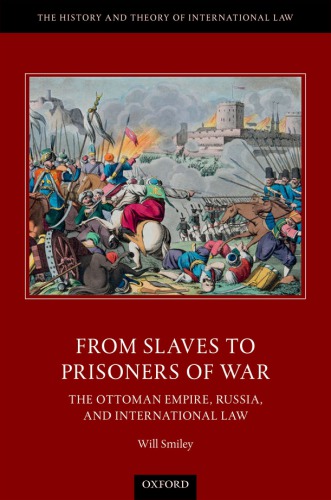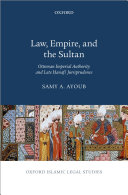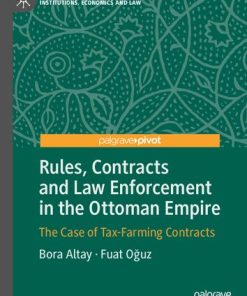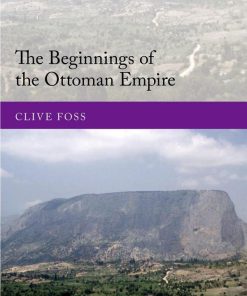(Ebook PDF) From slaves to prisoners of war the Ottoman Empire Russia and international law 1st edition by Will Smiley 0191088196 9780191088193 full chapters
$50.00 Original price was: $50.00.$25.00Current price is: $25.00.
From slaves to prisoners of war: the Ottoman Empire, Russia, and international law 1st edition by Will Smiley – Ebook PDF Instant Download/DeliveryISBN: 0191088196, 9780191088193
Full dowload From slaves to prisoners of war: the Ottoman Empire, Russia, and international law 1st edition after payment.

Product details:
ISBN-10 : 0191088196
ISBN-13 : 9780191088193
Author: Will Smiley
The Ottoman-Russian wars of the eighteenth century reshaped the map of Eurasia and the Middle East, but they also birthed a novel concept – the prisoner of war. For centuries, hundreds of thousands of captives, civilians and soldiers alike, crossed the legal and social boundaries of these empires, destined for either ransom or enslavement. But in the eighteenth century, the Ottoman state and its Russian rival, through conflict and diplomacy, worked out a new system of regional international law. Ransom was abolished; soldiers became prisoners of war; and some slaves gained new paths to release, while others were left entirely unprotected. These rules delineated sovereignty, redefined individuals’ relationships to states, and prioritized political identity over economic value. In the process, the Ottomans marked out a parallel, non-Western path toward elements of modern international law. Yet this was not a story of European imposition or imitation-the Ottomans acted for their own reasons, maintaining their commitment to Islamic law. For a time even European empires played by these rules, until they were subsumed into the codified global law of war in the late nineteenth century. This story offers new perspectives on the histories of the Ottoman and Russian Empires, of slavery, and of international law.
From slaves to prisoners of war: the Ottoman Empire, Russia, and international law 1st Table of contents:
Part I. First Interlude: The Ottoman Empire and its Neighborhood
1. War and Captivity
The Abode of Islam
The Abode of War
Military Captivity
Other Empires
2. Slavery and Ransom
Slaves and Slaveowners
Local Customary Law
Release
Extending Ransom
The Law of Ransom in Action
Part II. Second Interlude: Imperial Conflict and Russian Ascendancy
3. From the Law of Ransom to the Law of Release
Releasing Iranians
Releasing Russians
Captors’ Resistance
European Protégés
Renewing the Law of Release
Inside Households
Outside Istanbul
The Rules’ Persistence
4. The Boundaries of the Law of Release
Iranian and Russian Subjects
Extension to Non-Russian Subjects
Ottoman Christians
Georgians
Reinforcing Distinctions of Subjecthood
Conversion: From Circumcision to Confession
The Confession Test’s Limits
Part III. Third Interlude: The 1787 War
5. Prisoners of War
Collecting Captives in the 1768 War
The 1787 and 1806 Wars
Conditions in the Arsenal
Private Enslavement
The Fringes of the Imperial Network
Foreign Debates
6. Negotiating the Prisoner-of-War System
The Privileges of Rank
The Law of Nations
Work
Religion
Escape
Release and a Strike
Part IV. Fourth Interlude: The Age of Revolutions and the “Global Moment”
7. The Rules Expand
Requests and Capitulations
The Law of Nations, or the Law of Release?
Shifting Subjecthood
Peace Treaties
New Wars, Old Rules
8. Those Left Out
Ottoman Greek Corsairs
Foreign Corsairs
The Serbian Revolt
The Greek War of Independence
Slaves
Part V. Fifth Interlude: The Nineteenth Century
9. Military Reform, Reciprocity, and Improved Treatment
Continuity and Change in the 1828 War
Benign and Aggressive Reciprocity
Heybeliada
Continuing the Law of Release
Continuities and Comparisons in the Crimean War
The Treaty of Paris and the Law of Release
10. Humanitarian Law
Banning Civilian Enslavement
Wartime Humanitarian Organizations
Multilateral Treaties
Ottoman Policies and the Law
Legal Debates in the 1877 War
Ottoman Responses
From the Law of Release to the Nationality Law
People also search for From slaves to prisoners of war: the Ottoman Empire, Russia, and international law 1st:
were slaves prisoners of war
from slaves to soldiers
a prisoner of war
black prisoners of war civil war
black prisoners of war ww2
You may also like…
Politics & Philosophy - European & American Philosophy
History - Asian History
Politics & Philosophy - Politics
Uncategorized
Law, Empire, and the Sultan: Ottoman Imperial Authority and Late Hanafi Jurisprudence 1st Edition
Politics & Philosophy - Government & Politics
From the Napoleonic Empire to the Age of Empire: Empire after the Emperor 2023rd Edition
Politics & Philosophy - Government & Politics
History - Middle Eastern History
The Beginnings of the Ottoman Empire 1st edition by Clive Foss 0192634771 9780192634771











